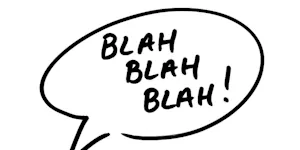What Makes This Word Tick
"Sinister" brings a certain chill down the spine, doesn't it? It's a word that simply means something seems evil or threatening, like a scene in a suspense film where you just know something bad is about to happen. The sound of the word matches its meaning, almost like a whisper in the dark.
If Sinister Were a Person…
Imagine "Sinister" as that character in a mystery novel who lurks in the shadows and always seems to be hiding something. They're dressed in a long, dark coat, with a hat pulled low over their eyes. They're the person you'd steer clear of in a dimly lit alley.
How This Word Has Changed Over Time
Interestingly, "sinister" originally didn't have such a dark meaning. Its roots lie in the Latin word for "left," without any malicious connotation. Centuries ago, it simply referred to the left-hand side, until superstitions spurred changes to its more ominous tone.
Old Sayings and Proverbs That Use Sinister
While "sinister" itself isn't commonly found in proverbs, the idea behind it is abundant. Think of sayings warning against those with "shifty eyes" or the mistrust of something lurking "in the shadows."
Surprising Facts About Sinister
In heraldry, the left side (or "sinister" side) of a coat of arms is considered less honorable, compared to the "dexter" (right) side. It's a playful nod to how left-handedness was, perhaps unfairly, associated with negative traits in the past.
Out and About With This Word
You might hear "sinister" in crime dramas or horror films, usually when something or someone seems untrustworthy. It's a favorite among writers and directors for creating an atmosphere of suspense and unease.
Pop Culture Moments Where Sinister Was Used
The X-Men series has a villain named Mr. Sinister. A character shrouded in mystery and malice, his name alone sets the tone for trouble. Not to mention, the word perfectly resonates with the aura he exudes in the comics and shows.
The Word in Literature
You'd find "sinister" in the pages of a gothic novel or the climax of a thriller. It's evocative, setting the stage for unnerving environments or characters with questionable motives. Think Edgar Allan Poe or even today's suspense thrillers.
Moments in History with Sinister
In mediaeval times, left-handed people were often viewed with suspicion (the poor souls!) and could be labeled as "sinister." The word's transformation into a term for evil can, in part, be attributed to these unfortunate medieval misconceptions.
This Word Around the World
In Italian and Spanish, the words "sinistra" and "siniestra" are direct descendants of the Latin "sinister" and both closely follow its root meaning of 'left'. Interestingly, neither carries the dark connotations as strongly as English does.
Where Does It Come From?
"Sinister" has its origins in Latin, where it simply meant "on the left side." Over time, due to cultural biases against left-handedness, it took on its more menacing overtones. The transformation is a fascinating look at how superstition can shape language.
How People Misuse This Word
Some folks might use "sinister" to simply mean anything creepy or odd, but it specifically suggests evil intentions or the threat of something bad happening. It’s not just a synonym for plain creepy.
Words It’s Often Confused With
Creepy: While creepy may unsettle, it doesn't always imply evil intentions.
Eerie: Eerie suggests a ghostly vibe, while sinister implies darker motives.
Dark: Dark can describe many things, but sinister suggests an almost deliberate malevolence.
Additional Synonyms and Antonyms
Synonyms for "sinister" might include threatening, ominous, and menacing. On the opposite side, you'd find words like harmless, innocuous, and benevolent.
Want to Try It Out in a Sentence?
"The old house had a sinister feel to it, as if its walls held secrets untold to the living."
















